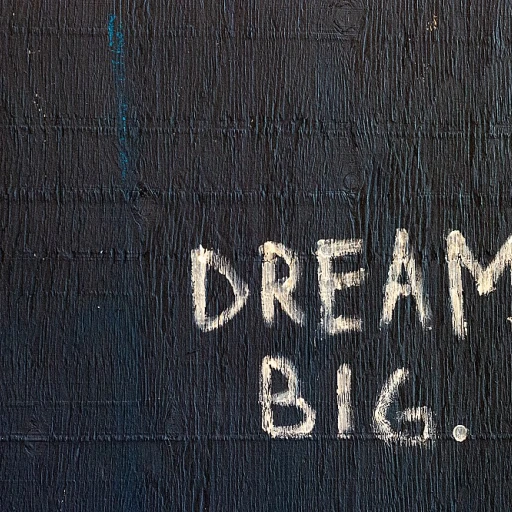Shifting the Recruitment Techniques
Navigating today's competitive job market can feel overwhelming. With AI's entrance into human resources, businesses have found new ways to handle recruitment, making it swifter and more precise. AI-driven tools have become the secret weapon, analyzing resumes at breakneck speed, saving time for HR professionals and letting them focus on engaging with top talent.
Think about how AI, powered by natural language processing, scans thousands of applications in mere moments. This technology ensures that the right skills and qualifications match with job descriptions, leaving minimal room for error. Moreover, predictive analytics helps foresee a candidate's potential based on historical data, offering insights into future performance or cultural fit within the company.
Real-world use cases highlight AI's impact on the hiring process. Companies like Unilever have implemented it to assess candidates through online interviews with AI bots, mimicking human interaction. This process not only boosts efficiency but provides a level of consistency human recruiters might find hard to match (Source: "
The Impact of AI for HR on Talent Acquisition and Management").
Furthermore, AI doesn’t just fill positions; it plays a significant role in enhancing the overall employee experience. Through data-driven insights, teams can focus on talent acquisition that aligns with company values and goals, creating a workforce planning strategy that’s poised for long-term success. Enhanced decision-making fuels these processes, ensuring a solid foundation for human resources management in the modern age.
Boosting Employee Engagement
Amplifying Employee Involvement
Creating a thriving workplace where employees feel valued isn't just a trend, it's a necessity. Artificial intelligence can make a big difference by spotting patterns in data that humans might miss, thus offering insights into how employees engage at work. Through analyzing feedback from surveys or social media platforms, AI can give human resources a clearer picture of what drives employee satisfaction. This information becomes invaluable for any management team looking to boost morale and productivity.
Moreover, chatbots and virtual assistants can provide real-time support, answering employees' questions and addressing their concerns promptly. This doesn't just lighten the load for HR teams, but also makes employees feel heard and appreciated. Machine learning tools can predict when an employee might become disengaged, allowing HR to take timely action to prevent turnover.
Source: How AI is changing the face of HR
Streamlining Performance Management
Performance reviews often evoke anxiety and stress, but AI is changing the game. Instead of the traditional annual reviews, AI enables continuous performance management by providing managers and employees with insights on their achievements in real time. With AI-driven platforms, tracking individual performance is like having a GPS for growth.
AI can analyze data from multiple aspects of an employee's role, from meeting deadlines to skills development. This data-driven approach ensures reviews are objective and actionable. Through natural language processing, AI can evaluate qualitative feedback, turning subjective opinions into measurable data. This move not only aids talent management but also nurtures a transparent and fair working atmosphere.
Data-Driven Decision Making
Decision-making in HR is like playing chess – it requires foresight and insight. AI acts as a chess master, processing vast amounts of information to provide actionable recommendations. Whether it's workforce planning or talent acquisition, data-driven tools enhance the accuracy of decisions while saving valuable time.
Predictive analytics offers a glimpse into future trends and challenges, empowering managers to make proactive adjustments. Such insights can help HR teams manage risks and make informed choices that benefit both the organization and its workforce.
As the world of HR continues to evolve, it's clear that AI has a pivotal role in reshaping traditional processes and creating smarter workplace solutions.
Revolutionizing How We Manage Employee Performance
Performance management is getting a major upgrade thanks to artificial intelligence. The days of dreaded annual performance reviews are fading away, replaced by real-time feedback and data-driven insights. With AI tools, managers can now assess employee performance continuously, providing timely and relevant feedback that actually helps employees grow.
Imagine a scenario where AI analyzes work patterns and productivity metrics to offer insights into an employee's strengths and areas for improvement. This isn't just about tracking tasks; it's about understanding how each team member contributes to the bigger picture. AI can identify trends that might go unnoticed, helping managers make informed decisions about promotions, training, and even workload distribution.
Data-Driven Insights for Better Talent Management
AI in performance management isn't just about evaluating past performance; it's about predicting future potential. Machine learning algorithms can analyze vast amounts of data to forecast which employees are likely to excel in leadership roles or who might need additional support. This predictive analytics approach allows HR teams to be proactive rather than reactive, tailoring talent management strategies to fit individual needs.
For example, natural language processing can sift through feedback and reviews to identify common themes or sentiments, providing a more nuanced understanding of the employee experience. This kind of analysis can reveal insights that traditional methods might miss, offering a more comprehensive view of an employee's journey within the company.
Enhancing Employee Experience Through AI
AI's role in performance management extends beyond just metrics and numbers. By using AI-driven insights, companies can enhance the overall employee experience. When employees feel that their contributions are recognized and valued, engagement levels rise. This positive feedback loop not only boosts morale but also fosters a culture of continuous learning and development.
AI tools can also streamline workforce planning by analyzing data to predict future staffing needs. This ensures that teams are adequately resourced, reducing burnout and improving job satisfaction. With the right AI tools, companies can transform their performance management processes into a strategic advantage, driving both employee and business success.
For more on how AI can enhance HR processes, check out this resource on strategic HR planning.
Enhancing Decision-Making with Data
Smarter Choices, Better Outcomes
When it comes to improving human resources, data-driven decisions are the name of the game. Artificial intelligence shines by helping HR teams make more informed decisions, optimizing the overall management of human capital.
AI tools provide real-time insights, transforming employee data into easily digestible, actionable information. For example, performance reviews are no longer a dreaded task but a seamless process that gives managers clear pictures of employee progress. With machine learning algorithms sifting through vast amounts of data, recognizing patterns becomes second nature.
AI-powered analytics offer a glimpse into employee engagement and performance, providing valuable insights into what's working and what's not. These insights are game-changers, allowing HR teams to fine-tune processes and make strategic decisions about workforce planning and talent management.
Predictive Power
Moreover, incorporating AI in decision making opens doors to predictive analytics. Predictive analytics is the crystal ball of HR, whether it's anticipating employee turnover, identifying high-potential talent for leadership roles or streamlining the hiring process. The ability to predict trends means HR teams can actively manage risk and reduce uncertainty.
On top of that, machine learning takes those predictions and learns from them over time, refining the algorithms for even more accurate results. It’s technology that doesn’t just analyze the past; it forecasts the future, giving HR teams the ability to be proactive rather than reactive.
Streamlining Tasks and Saving Time
AI-driven decision making takes away the guessing game, allowing HR professionals to focus on what truly matters: the people. By eliminating repetitive tasks and simplifying job descriptions, artificial intelligence cuts down the time spent on mundane tasks, letting HR teams invest more in employee experience and engagement initiatives.
Imagine the impact of having more time to engage with talent on a personal level, enhancing the workplace atmosphere and nurturing employee satisfaction. This not only boosts performance but also solidifies the company's reputation as an employer of choice.
Incorporating AI into HR decision making isn’t just about efficiency—it's about changing the very nature of how teams work, ensuring that they operate with intelligence and insight. That’s the promise of AI in human resources.
Ensuring Ethical AI Implementation
Upholding Ethical Integrity in AI Tools for HR
When you're working in human resources, introducing artificial intelligence can feel like adding a new member to the team. It might have some quirks, but just like any team member, it needs to follow the rules. Trust comes from knowing that AI tools won't overstep boundaries or misuse data. Being transparent and fair is the name of the game.
Ethics in AI isn't just a buzzword; it's a necessity. Imagine machine learning models making decisions that affect who gets hired, promoted, or let go. The potential for bias is real, and HR teams must be vigilant, ensuring that their AI solutions are designed to avoid excluding talents. There are tools that use data but they should do so responsibly, aligning with the organization’s ethical standards.
It's about people, after all. While AI might process data faster than any human ever could, it requires supervision. Machines lack the nuanced understanding that humans bring. You might think of it like this: just because a tech solution can automate tasks, doesn’t mean it should act without human oversight. HR professionals need to keep their hands on the wheel, guiding AI-driven tools with experience and expertise.
Consider performance reviews for instance—AI can efficiently analyze employee data, but the final judgement of someone's talent and potential still rests best in human hands, understanding the complexities that data alone can't show.
When you adopt AI, it’s vital to embed ethics into its heart from day one. Ongoing dialogue, compliance checks, and open lines of communication keep human intelligence and artificial intelligence in sync. Add educational initiatives for employees, explaining how AI uses their data, and you foster trust and transparency within the workforce.
Risk management in AI also includes acknowledging mistakes. Just like when an employee makes a mistake, when AI tools "goof up," it’s about learning from those missteps. Organizations committed to ethical AI understand that this isn't just good PR—it's proper governance.
Now, while buzzwords might make headlines, they only scratch the surface. Real value comes from digging into how AI can support employees, enhancing employee experience while ensuring fair play. Dive into further insights by exploring the vibrant discussions
here. Once the ethical checks and balances are set, AI can indeed be the trusty sidekick HR always needed.
Future Trends in AI for HR
Peering into Tomorrow's HR with AI
Artificial intelligence is reshaping how human resources operate, and it's just getting started. As we look ahead, AI's role in HR will only grow, making processes more efficient and employee experiences richer. Here's a glimpse of what the future holds.
AI-Powered Predictive Analytics
Predictive analytics is set to become a staple in workforce planning. By analyzing past data and trends, AI can forecast future hiring needs, helping HR teams stay ahead of the curve. This technology not only saves time but also ensures that the right talent is in place when needed, enhancing the overall employee experience.
Real-Time Insights for Decision Making
The ability to make informed decisions in real-time will be a game-changer. AI-driven tools will provide HR professionals with instant insights, allowing for quick adjustments in strategies related to talent management, performance reviews, and employee engagement. This means more agile and responsive HR processes.
Advanced Natural Language Processing
Natural language processing is advancing rapidly, and its impact on HR is profound. From refining job descriptions to improving communication within teams, this technology will streamline tasks that were once time-consuming. It allows for a more personalized approach, enhancing employee satisfaction and engagement.
Enhanced Employee Engagement through AI
AI will continue to play a pivotal role in boosting employee engagement. By analyzing data on employee behavior and preferences, AI can suggest personalized initiatives to keep employees motivated and satisfied. This aligns with the insights discussed earlier about boosting engagement through AI.
Ethical Considerations and Risk Management
As AI becomes more integrated into HR processes, ethical considerations and risk management will be paramount. Ensuring that AI tools are used responsibly, without bias, and with transparency will be crucial. This ties back to the importance of ethical AI implementation discussed previously.
In conclusion, the future of HR with AI is promising. By embracing these advancements, organizations can enhance their human resources management and provide a better workplace for their employees.












